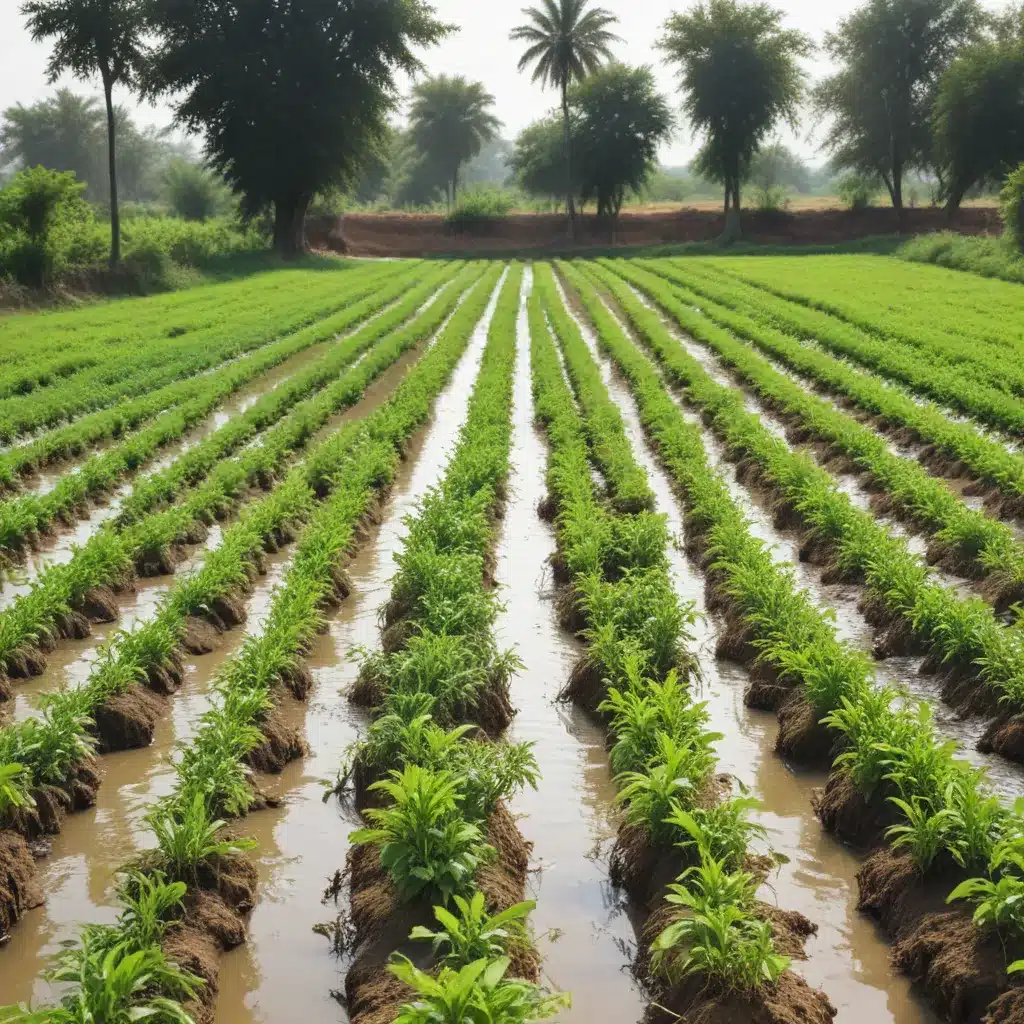
Unlocking the Potential of Sustainable Agriculture in Hyderabad
As the world grapples with the mounting challenges of food security and environmental sustainability, the city of Hyderabad in India has emerged as a beacon of hope, showcasing innovative water-efficient agricultural practices that are transforming the landscape of food production. Led by a team of dedicated researchers and practitioners, Hyderabad’s agricultural revolution is not only ensuring the region’s food self-sufficiency but also promoting a harmonious balance between human needs and ecological preservation.
Addressing the Water-Food Nexus
At the heart of Hyderabad’s agricultural transformation lies a deep understanding of the intricate relationship between water and food production. Recognizing that water scarcity is a pressing global issue, the city’s agricultural experts have embraced a holistic approach to water management, integrating cutting-edge technologies and traditional wisdom to optimize water usage in farming.
One of the key initiatives driving this change is the development of advanced irrigation systems that minimize water waste and maximize crop yields. By utilizing precision irrigation techniques, such as drip and sprinkler systems, Hyderabad’s farmers have been able to precisely deliver water to the roots of their crops, reducing overall water consumption while maintaining high productivity. This approach not only conserves precious water resources but also minimizes the risk of waterlogging and soil degradation.
Harnessing the Power of Biotechnology
Alongside the advancements in irrigation, Hyderabad has also emerged as a hub for innovative agricultural biotechnology research. Researchers at the city’s esteemed educational and research institutions, such as the Indian Institute of Technology Hyderabad (IITH), have been at the forefront of developing drought-resistant and water-efficient crop varieties.
“Our team at IITH is committed to exploring the food-water-energy nexus, with a focus on creating sustainable agricultural solutions,” explained Dr. Praveen Meduri, an associate professor of chemical engineering at IITH. “We are utilizing advanced materials and electrochemical catalysis to enhance the efficiency of critical processes, including water purification and sustainable agricultural practices.”
Through their groundbreaking work, the researchers have been able to identify and cultivate crop species that can thrive in water-scarce environments, reducing the overall water demand while maintaining high yields. These drought-tolerant crops not only enhance food security but also contribute to the long-term resilience of the region’s agricultural system.
Promoting Agroecological Practices
In addition to technological advancements, Hyderabad has also embraced the principles of agroecology, a holistic approach to agricultural management that prioritizes ecological balance and sustainability. By integrating traditional farming methods with modern scientific knowledge, Hyderabad’s farmers have been able to develop innovative agroecological practices that enhance soil health, promote biodiversity, and reduce the reliance on chemical inputs.
One such practice is the adoption of organic farming techniques, which have gained significant traction in the region. By utilizing composting, crop rotation, and natural pest management strategies, Hyderabad’s farmers have been able to reduce their carbon footprint, improve soil fertility, and produce nutritious, chemical-free food. This shift towards organic agriculture not only benefits the environment but also meets the growing consumer demand for sustainable and healthier food options.
Moreover, the city has also pioneered the use of integrated farming systems, where diverse crop and livestock enterprises are strategically combined to create a self-sustaining and resource-efficient agricultural ecosystem. By integrating elements like aquaculture, poultry, and agroforestry, these integrated systems optimize the utilization of land, water, and nutrients, while also providing a diversified source of income for the farmers.
Empowering Smallholder Farmers
Hyderabad’s water-efficient agricultural revolution has not only focused on technological advancements but also on empowering the region’s smallholder farmers, who play a crucial role in ensuring food security and environmental sustainability.
Through targeted training programs and extension services, Hyderabad’s agricultural experts have been able to equip smallholder farmers with the knowledge and skills necessary to adopt water-efficient and agroecological practices. These initiatives have not only improved the farmers’ crop yields and incomes but also fostered a sense of stewardship towards the land and its natural resources.
“By working closely with the local farming communities, we have been able to co-create innovative solutions that address their unique challenges and align with their traditional knowledge,” said Dr. Meduri. “This collaborative approach has been instrumental in driving the widespread adoption of sustainable agricultural practices in Hyderabad.”
Scaling Up for Greater Impact
Hyderabad’s water-efficient agricultural success story has not gone unnoticed, and the city has become a hub for knowledge-sharing and regional collaboration. The city’s agricultural experts have been actively engaged in disseminating their best practices and innovative strategies to neighboring regions, helping to replicate and scale up the impact of sustainable food production.
Through partnerships with local and regional governments, as well as international development organizations, Hyderabad has been able to establish training centers, demonstration farms, and knowledge-sharing platforms that empower farmers across the state of Telangana and beyond. This collaborative approach has been crucial in ensuring that the benefits of Hyderabad’s water-efficient agricultural revolution reach a wider audience, contributing to the broader goal of food security and environmental sustainability.
Conclusion: A Model for Sustainable Food Production
Hyderabad’s water-efficient agricultural practices have set a remarkable example for sustainable food production, demonstrating the power of innovation, community engagement, and holistic resource management. By leveraging cutting-edge technologies, embracing agroecological principles, and empowering smallholder farmers, the city has been able to transform its agricultural landscape, ensuring food security while preserving the delicate balance of the local ecosystem.
As the world grapples with the mounting challenges of climate change and resource scarcity, Hyderabad’s story serves as a testament to the potential of sustainable agriculture to drive positive change. Through the continued efforts of researchers, policymakers, and farming communities, the city’s water-efficient agricultural practices can inspire and guide other regions in their pursuit of a more resilient and environmentally-conscious food system.

